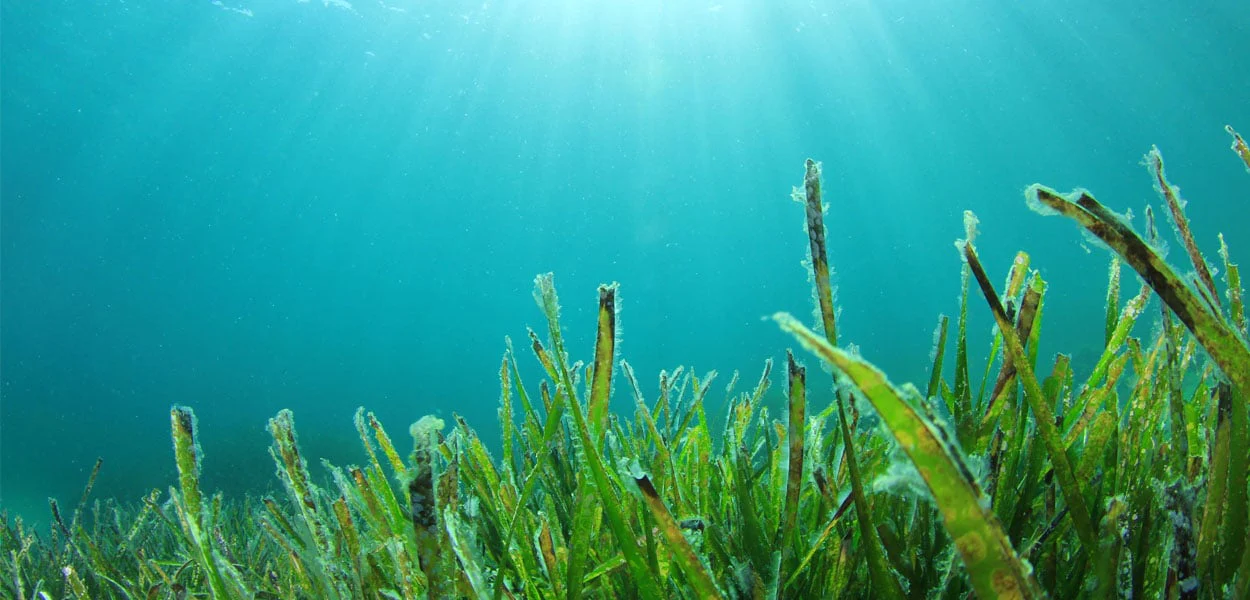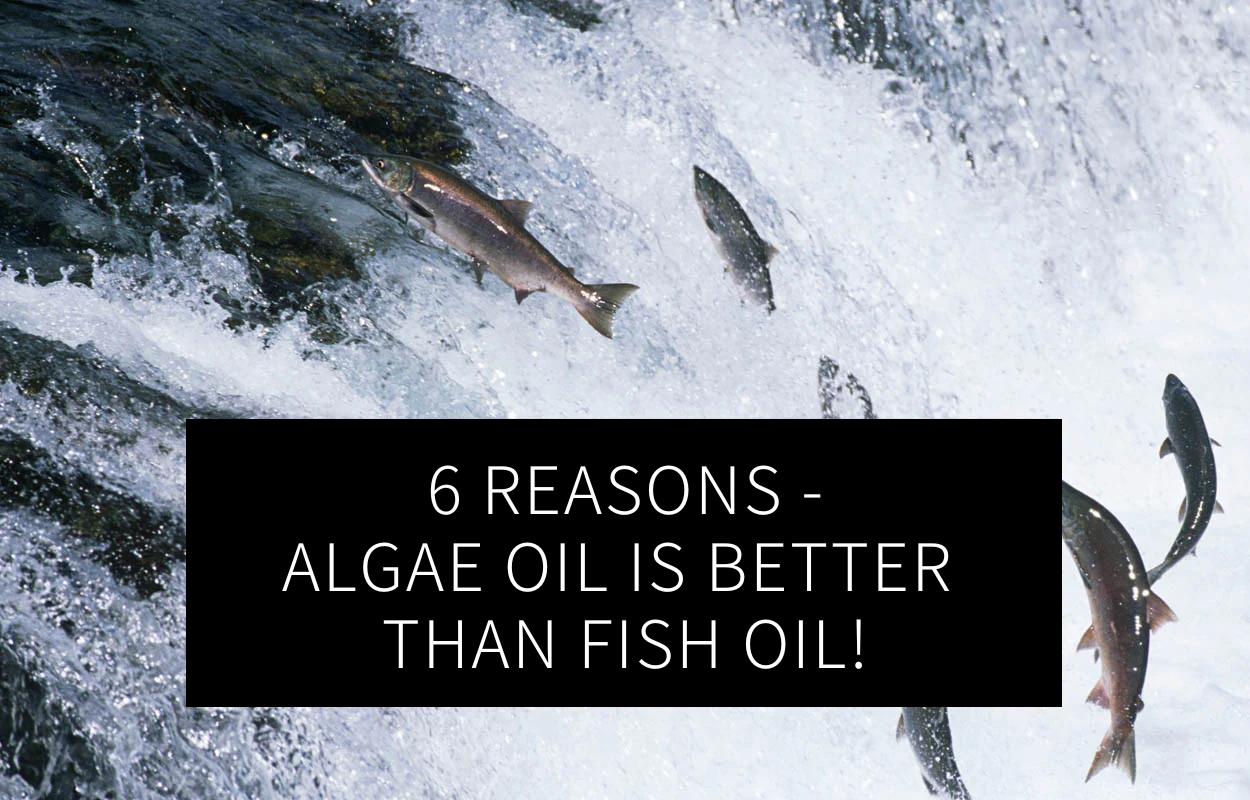Algae oil has many advantages over krill oil and fish oil. It is vegan, tasteless and odorless, sustainable, and has high bioavailability.
Omega-3 fatty acids are generally considered healthy fats that are believed to have many health benefits. They are believed to contribute to optimal brain function, which can be of great advantage for biohackers. Unfortunately, we cannot produce these fatty acids ourselves, which means that we have to obtain them through our diet. One of the best vegan sources of omega-3 fatty acids is algae oil. In this article, we will show you what algae oil is and the advantages it has over krill oil and fish oil.
1. Why Omega-3?
More and more people want to enhance their cognitive performance to be more focused, concentrated, and productive in their daily lives. If you are a vegan looking for a suitable energy source for your brain, you will eventually come across omega-3 fatty acids, which are part of the polyunsaturated fatty acids. They are essential for us, which means that we cannot produce them ourselves and must obtain them exclusively through our diet.
EPA (eicosapentaenoic acid) and DHA (docosahexaenoic acid) are the active omega-3 fatty acids that your body can best utilize. Although there is another omega-3 fatty acid called alpha-linolenic acid (ALA) that is found in plant-based foods such as flaxseed or hemp oil, your body cannot process this fatty acid as effectively as DHA and EPA.
In the past, it was not easy to obtain these valuable omega-3 fatty acids. Fish and cod liver oil were considered the best sources of omega-3 fatty acids, but these foods were not everyone’s preference even back then. Fortunately, today we are not necessarily dependent on fish and cod liver oil to incorporate these valuable fatty acids into our diet. Two dietary supplements rich in omega-3 fatty acids, fish oil and krill oil, have established themselves in the market. However, the biggest disadvantage is that they are not vegan and therefore not suitable for a vegan diet.
Fortunately, as a vegan biohacker, you can still get your supply of omega-3 fatty acids by opting for a plant-based alternative derived from microalgae. Algae oil is said to be just as effective as krill oil or fish oil, if not better.

2. What are fish oil and krill oil?
When it comes to omega-3 fatty acids, algae oil, fish oil, and krill oil are often mentioned together as alternatives to fish and cod liver oil. To illustrate the differences between these omega-3 sources, we would like to briefly introduce them to you.
2.1. What is fish oil?
For non-vegans who do not like fish, fish oil capsules are often used to meet their omega-3 fatty acid needs. The capsules are derived from the fat of fatty fish and can have a typical fish taste, depending on the type.
3. Why algae oil?
The answer is simple: Algae oil is said to be one of the best, if not the best, source of the two omega-3 fatty acids EPA and DHA. To recap, eicosapentaenoic acid (EPA) and docosahexaenoic acid (DHA) are among the omega-3 fatty acids that your body can utilize optimally. However, animal-based foods such as fish and cod liver oil have been considered the (so far) best sources.
Fortunately, there is vegan algae oil omega-3, which contains both essential fatty acids EPA and DHA in high concentration.
4. What are the effects of algae oil?
Algae oil is believed to have many health benefits. Algae oil omega-3 is associated with many positive effects, although many people seem to consume too little omega-3 fatty acids. Algae oil is often associated with benefits for heart health and blood pressure, as omega-3 fatty acids are believed to contribute to the prevention of cardiovascular diseases. Furthermore, the two fatty acids EPA and DHA are attributed with anti-inflammatory properties.
One point that should be particularly interesting to you as a biohacker is that the two omega-3 fatty acids, EPA and DHA, can enhance your cognitive performance by improving the signal transmission between nerve cells. After all, your brain consists of 30 percent docosahexaenoic acid, which underscores the importance of this essential fatty acid. Additionally, the fatty acid is present in your retina. We will now reveal the other benefits of algae oil omega-3 and why algae oil capsules are superior to fish and krill oil.
5. Why Algae Oil Capsules are Better than Fish Oil and Krill Oil
As a vegan performer, you probably value a healthy, plant-based diet, so you will be pleased to know that algae oil capsules provide a plant-based alternative with a high content of omega-3 fatty acids. The capsules do not differ in terms of their effects from other products. Read on to discover the advantages of algae oil capsules over krill and fish oil.
5.1. Algae oil capsules are purely plant-based
If you are looking for a plant-based source of EPA and docosahexaenoic acid, algae oil capsules are a good omega-3 supplier for a vegan diet. Algae oil capsules are derived from algae, specifically a microalgae called Schizochytrium, making them a plant-based food source. This significantly contributes to the preservation of fish stocks and animal welfare. As a vegan biohacker, this means you can perfectly incorporate essential fatty acids into your plant-based diet while living vegan and contributing to the protection of animals and oceans.
5.2. Algae oil capsules are rich in DHA and EPA
Algae oil capsules are just as rich in eicosapentaenoic acid (EPA) and docosahexaenoic acid (DHA) as fish. What many people don’t know is that fish contain so many omega-3 fatty acids because they obtain EPA and DHA (like other marine creatures) from microalgae. In theory, it is not necessary to meet your daily omega-3 fatty acid requirements through fish consumption, as the microalgae Schizochytrium is the actual „source“ of these essential fatty acids EPA and DHA.
5.3. Algae oil capsules come from sustainable cultivation
The algae Schizochytrium are microscopic marine algae mainly found in the shallow waters of tropical regions. To preserve the marine ecosystem and the population of microalgae, our capsules are sourced from sustainable aquaculture, where they are cultivated and harvested under supervision in artificial seawater and processed gently. This allows us to extract oil that is free from contaminants and plastic.
5.4. Algae oil capsules are odorless and tasteless
One of the best features of algae oil capsules is that they are completely odorless and tasteless. They can be a good source of omega-3 fatty acids not only for vegan high performers but also for non-vegans who do not like the typical taste and smell of fish oil capsules. Many fish oil capsules retain the classic fish taste.
5.5. Algae oil capsules are free from contaminants
The fact that the microalgae Schizochytrium is derived from sustainable and organic cultivation has the great advantage that it is free from microplastics and contaminants, which have become a major problem in recent years. Many fish are contaminated with heavy metals, particularly mercury, and contain residues of microplastics. It is currently estimated that by 2050, there could be more microplastics in the oceans than fish. This is another reason to switch to algae oil capsules.
5.6. Algae oil capsules have high bioavailability
Compared to fish and krill, algae oil capsules have equally good bioavailability, as the body can absorb the omega-3 fatty acids they contain very well. However, the situation is much worse with the omega-3 fatty acid ALA, which is found exclusively in plant-based foods and needs to be converted into EPA and DHA. This process is extremely cumbersome for the body, and it can only utilize a fraction of the omega-3 fatty acids present in plant-based foods.
Conclusion: Algae oil capsules are an excellent source of omega-3
If you follow a vegan diet and aim to perform at the highest level, omega-3 fatty acids should be an important part of your nutrition. They are believed to have an anti-inflammatory effect and can enhance cognitive performance as they make up approximately 30 percent of the brain. Unfortunately, omega-3 fatty acids are still often associated with fish and krill, even though they are primarily found in microalgae that serve as a food source for many marine animals. To preserve the population of microalgae in the oceans, algae oil capsules sourced from sustainable aquaculture are the best choice. They are not only vegan, odorless, and tasteless but also free from microplastics and contaminants, and they have the advantage of high bioavailability.






